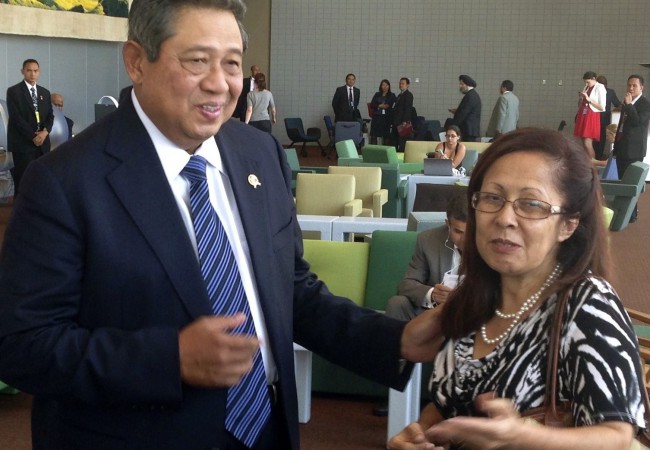
Supporting the UN High Level Panel on post-2015 agenda
PiPP executive director, Derek Brien, served as an advisor to H.E. Emilia Pires, Timor-Leste finance minister and g7+ chair, in her role as a member of the UN Secretary General’s High Level Panel of Eminent Persons on the Post-2015 Development Agenda.
The 26 member panel was co-chaired by President Susilo Bambang Yudhoyono of Indonesia, President Ellen Johnson Sirleaf of Liberia, and Prime Minister David Cameron of the United Kingdom, and included acclaimed leaders from civil society, private sector and government.
The Panel was part of the Secretary General’s post-2015 initiative mandated by the 2010 MDG Summit. UN Member States have called for open, inclusive consultations involving civil society, the private sector, academia and research institutions from all regions, in addition to the UN system, to advance the development framework beyond 2015. The work of the Panel reflected new development challenges while also drawing on experience gained in implementing the MDGs, both in terms of results achieved and areas for improvement.
The Panel’s work was closely coordinated with that of the intergovernmental working group tasked to design Sustainable Development Goals, as agreed at the Rio +20 conference.
The report [PDF 3.6MB] of the panel was informed by an extensive consultative process, the views of the scientific and academic community as conveyed through the Sustainable Development Solutions Network and through passionate and vigorous debate. It outlines five transformational shifts applicable to both developed and developing countries alike:
- First, to leave no one behind. To keep faith with the original promise of the MDGs, and finish the job – by ensuring that by 2030, the world has ended extreme poverty in all its forms.
- Second, to put sustainable development at the core. To realize the integration of social, economic, and environmental sustainability that has eluded every country in the two decades since the Earth Summit in Rio.
- Third, to transform economies for jobs and inclusive growth. Achieving a quantum leap in economic opportunities, spurring rapid and equitable growth while moving to sustainable consumption and production patterns.
- Fourth, to build peace and effective, open and accountable institutions for all. Freedom from fear and violence is the most basic human entitlement, and people demand peace and good governance as a core component of their well-being, not an optional extra.
- And finally, and as an overarching principle, to forge a new global partnership based upon a new spirit of solidarity, mutual benefit and mutual accountability, involving not just governments but also all other stakeholders, from civil society and the private sector to academia and faith communities.
The report also includes a set of illustrative goals and measurable targets to replace the MDGs.
Following on from our involvement in the HLP process, PiPP continues to support Timor- Leste, the g7+ and a number of Pacific island governments through the inter-governmental process to determine the post-2015 agenda.

